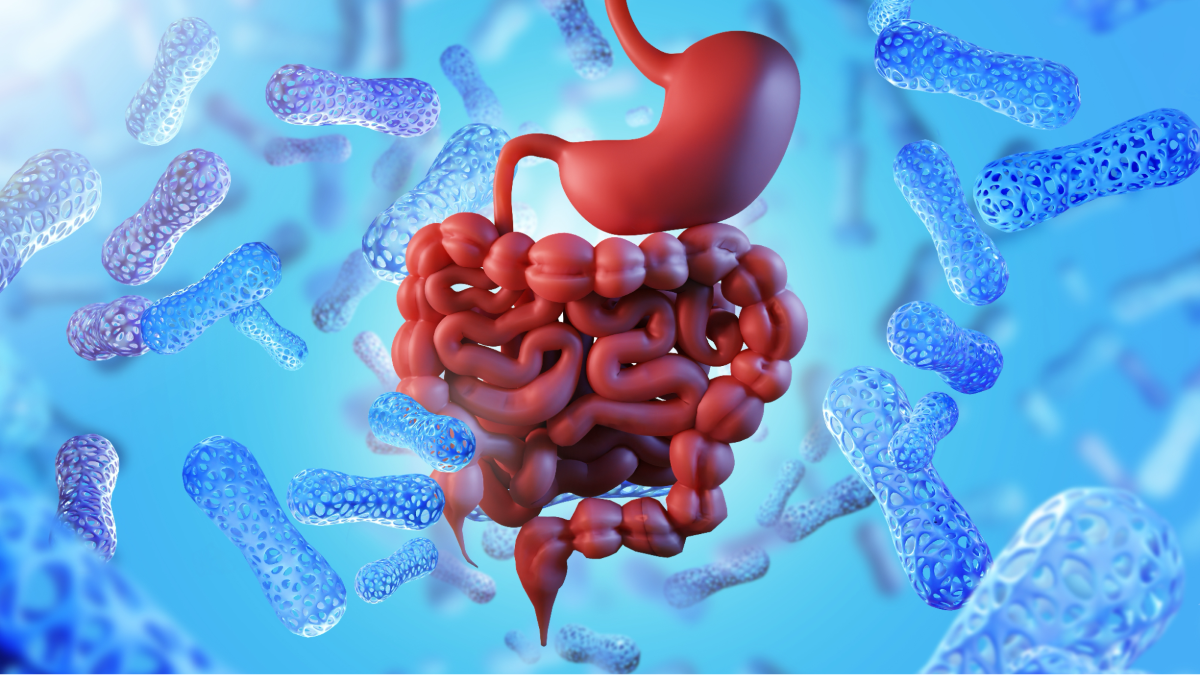Recently, while conducting intestinal analysis on some of my patients, I discovered that p-cresol, a chemical produced by intestinal microbiota, has adverse effects on our kidneys, liver, and brain.
When our diet is unbalanced, intestinal bacteria produce harmful substances, such as p-cresol, produced by certain intestinal bacteria when they break down proteins, especially aromatic amino acids, as a byproduct of metabolism. When do our guts produce these harmful substances? How do we maintain intestinal and overall health?
Effects on the Kidneys
One of the kidneys’ most essential functions is detoxifying the body. P-cresol is a uremic toxin harmful to the kidneys. It is normally absorbed into the bloodstream by the intestines and then excreted through the kidneys.
For people with normal kidney function, urination can eliminate uremic toxins. However, problems arise if kidney function is weak, resulting in too much p-cresol accumulation, which may aggravate uremia symptoms.
P-cresol is part of a vicious cycle. On the one hand, p-cresol itself can harm the kidneys; on the other hand, when kidney function is poor, p-cresol will accumulate in the blood and damage the kidneys even further.
Studies have found that kidney function declines with the development of chronic kidney disease, and the kidneys’ clearance rate of uremic toxins, such as p-cresol, decreases, increasing plasma protein-bound uremic toxin levels.
Effects on Intestinal Health
The intestines are a crucial player in our body’s line of defense. Excessive p-cresol in the intestines can cause chronic enteritis (inflammation of the small intestine), damage the
intestinal barrier, and lead to “leaky gut” syndrome. In this situation, harmful substances are more likely to enter the bloodstream and cause systemic inflammation.
Too much p-cresol can also be incredibly harmful to our metabolism. It interferes with blood sugar and body weight by affecting fat and sugar metabolism. Metabolic diseases such as hyperglycemia, hyperlipidemia, hypertension, and obesity are likely to follow. If you already have these problems, p-cresol may be to blame. Therefore, to improve metabolic disorders, we must ensure that our intestines are healthy.
In recent years, the incidence of colorectal cancer has climbed, especially among younger people. P-cresol may be implicated here. It is not just a urinary toxin but also related to the proliferation and migration of cancer.
Many autoimmune-related diseases may also be caused by damage to the intestinal barrier. The human body is so sophisticated; it is unlikely that it will attack itself for no reason.
Effects on the Nervous System
There is growing
evidence that high concentrations of p-cresol may cause neurological disorders and increased nerve inflammation. A 2021
study in Microbiome found that the microbial metabolite p-cresol selectively induces autism spectrum disorder behavioral symptoms in mice. Microbiota composition changes may influence social behavior deficits induced by p-cresol.
Many factors increase the severity and complexity of autism, and one major factor is gut health. For instance, many autistic children are born by cesarean section. They lack the normal flora gained via passing through the birth canal, so they often experience gastrointestinal complications later in life. Problems with memory, attention, and cognition, especially among young people, should signal us to consider whether a problem in the intestines is causing excessive production of p-cresol, which affects the brain and nervous system.
P-cresol also affects the metabolism of dopamine and certain other neurotransmitters. Two older studies found higher levels of p-cresol in the urine of children with autism. Although this does not prove that p-cresol is the cause of autism, it suggests a link between p-cresol and neurodevelopment.
Diet to Prevent Excessive P-Cresol Levels
Here are a few dietary tips to control excess p-cresol.
1. Avoid Processed Foods and Eat More Plant-Based Foods
Cut down on red meat and avoid processed foods. Foods with a lot of animal protein contain bacteria that tend to produce more p-cresol.
A study on the relationship between dietary patterns and chronic kidney disease found that adherence to a healthy dietary pattern was not associated with kidney function or chronic kidney disease in adjusted models. A healthy dietary pattern was defined as one akin to the Mediterranean diet (high in plant-based foods, fish, nuts, and seeds, and low in red meat and processed foods). An unhealthy dietary pattern was associated with worse kidney function and a greater prevalence of chronic kidney disease.
Protein intake must also be regulated to maintain a healthy balance between animal and plant foods. Choosing more plant-based proteins can reduce the production of p-cresol.
2. Increase Dietary Fiber
As a prebiotic, dietary fiber helps the growth of probiotics and can also inhibit harmful bacteria that produce p-cresol.
Research has found that supplementing the diet of chronic kidney disease patients with fiber may reduce p-cresol and improve stool frequency. Eating more grains, fruit, vegetables, and legumes is also recommended.
3. Supplement Probiotics
Moderate intake of probiotics is beneficial to health. Animal and human
studies suggest that prebiotics and probiotics may help maintain metabolically balanced gut microbiota and reduce the progression of chronic kidney disease and uremia-associated complications.
It is recommended to eat fermented foods such as yogurt, sauerkraut, and kimchi. However, some probiotic supplements can also be helpful.
4. Consume Antioxidants
Foods rich in antioxidants can protect the intestines, kidneys, and brain cells from damage caused by p-cresol. For example, green tea, blueberries, and nuts can be a beneficial addition to our diet.
Research suggests that proanthocyanidin-containing polyphenol extracts (chemicals that give plants their vibrant colors) and proanthocyanidin metabolites likely contribute to the protection of the colonic mucosa against the harmful effects of p-cresol.
In addition, pure hydrogen is also a potent antioxidant. Inhaling the gas will send it directly into the brain. Hydrogen-rich water can also play a direct antioxidant role in the intestines and reduce intestinal inflammation. It is recommended to use high-quality hydrogen therapy to reduce p-cresol, which can help maintain the balance of intestinal flora and reduce the burden on the intestines.








